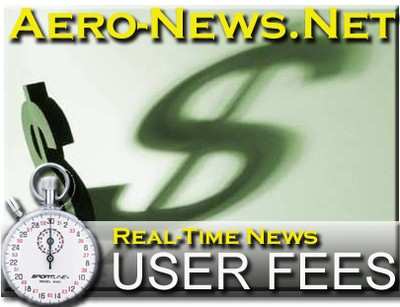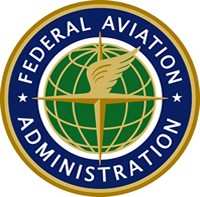Surprise, Surprise... Airline Charges Reduced, OR
Eliminated, Under Plan
That 'thud' you hear is the other shoe dropping in the FAA's
proposed funding reauthorization scheme.

According to an internal Powerpoint presentation obtained by
Aero-News through a VERY reputable News-Spy -- and verified as
accurate by sources familiar with the issue -- higher fuel taxes
and charges to use terminal airspace may not be the most egregious
aspects of the agency's airline-supported (and VERY
airline-friendly) proposal.
According to the document -- from a presentation given at the
AVS Senior Management Conference earlier this month -- the FAA
intends to sharply increase charges for such current mundanities as
airmen certification and aircraft registration.
And when we say "sharply," we mean "paying through the nose...
and likely other orifices, as well."
Check out these charges: currently, pilots do not have to pay a
fee for an airman certificate, or a medical (you're paying the
doctor for the exam for the latter.) Under the FAA's proposal, it
would cost a total of $92 to obtain a private pilot license -- $50
for the airman certificate, another $42 for the medical. And that's
on top of the doctor's visit. Replacement charges for the airman
cert rise from the current $2, up to $25.
It gets worse if you're looking to register your own airplane.
It now costs $5 to register an aircraft... and another $10 if you
want a specific N number. If the FAA has its way, those costs would
skyrocket to $130 and $80, respectively. The FAA helpfully notes
the registration charge "is less than the price of registering a
car in most states."
 According to the FAA's figures, the increases will bring in an
additional $52 million in user fees -- more than the projected $48
million a previously-announced, four-fold increase in fuel taxes
will bring to FAA coffers.
According to the FAA's figures, the increases will bring in an
additional $52 million in user fees -- more than the projected $48
million a previously-announced, four-fold increase in fuel taxes
will bring to FAA coffers.
If your stomach is turning now... you may wish to grab the
Mylanta before reading why the FAA feels such costs are
justified.
"It is worth it to the applicant to pay for these products in
order to accomplish their aviation mission," according to the
presentation, " and ensure I (sic) high degree of safety."
As for similar increases in the cost to obtain airworthiness
certificates, designee appointment and renewals, type certificates
and STCs, the FAA notes "[d]esginees, flight schools and repair
station operators, must have these certificates to meet their
business goals in a safe manner."
"The simple value of these business opportunities are worth the
cost of obtaining a certificate," the FAA adds.
Just in case you were wondering how the airlines fare under the
FAA's proposal... here is a list of current passenger taxes that
would be eliminated under the FAA's scheme:
- Domestic Ticket Tax
- Frequent Flyer Tax
- Domestic Segment Tax
- Cargo Shipping Tax
The International arrival and departure fee would be
significantly decreased under the FAA's plan, as well... from a
current high of $15.10, to just $6.39.
As previously implied, the FAA also seeks to cut the Airport
Improvement Program budget... from $3.2 billion to $2.75 billion, a
loss the agency says will be "more than made up for" by a raising
of the cap on Passenger Facilities Charges to $6.00 per flight
segment.
If it appears the FAA is setting itself up for a funding
windfall under these new charges, you'd be right -- except for one
curious aspect. By the FAA's own admission, total costs brought in
for FY2009 by the new funding scheme, if implemented, would be
$11,347,000... which is LESS than the agency projects to take in
for FY2008, under the current fee structure.
ANN will continue to investigate this issue, and report more
details as they become available. One thing seems clear, folks...
the FAA has GA in its sights... and expects private pilots to pay,
and pay, and pay...
 ANN's Daily Aero-Linx (04.30.25)
ANN's Daily Aero-Linx (04.30.25) ANN FAQ: Turn On Post Notifications
ANN FAQ: Turn On Post Notifications Classic Aero-TV: Agile Aeros Jeff Greason--Disruptive Aerospace Innovations
Classic Aero-TV: Agile Aeros Jeff Greason--Disruptive Aerospace Innovations Aero-News: Quote of the Day (04.30.25)
Aero-News: Quote of the Day (04.30.25) ANN's Daily Aero-Term (04.30.25): Expedite
ANN's Daily Aero-Term (04.30.25): Expedite




